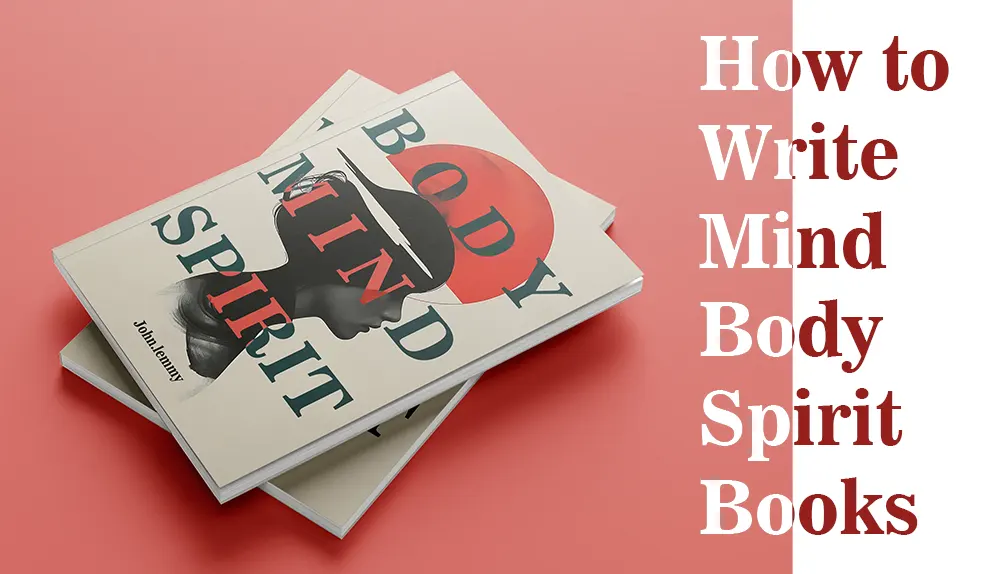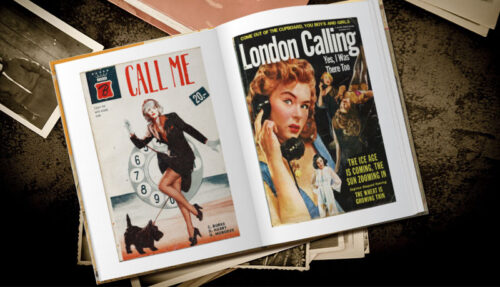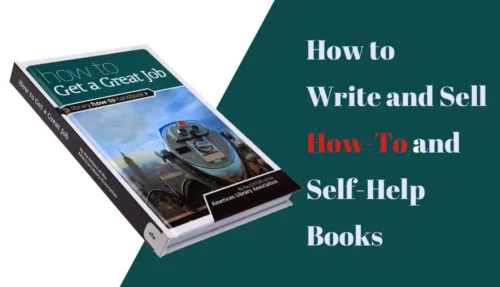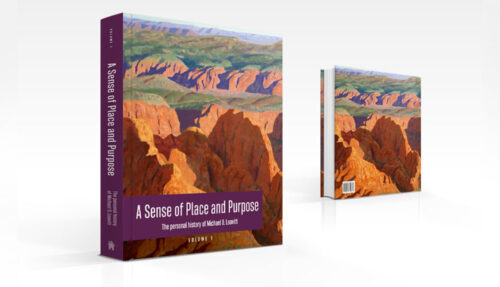Learn what readers of the body-mind-spirit genre want to buy and how to write for this lucrative niche market

The facts about faith and self-publishing
You don’t need to be a devout believer in a given faith system or spiritual vibe to write books for the body-mind-spirit and inspirational markets. But you do need to be honest, sincere, and sympathetic. To write and sell inspirational work, you don’t need faith — although it helps! — but you do need sincerity. You can’t fake it.
The mind-body-spirit genre offers innumerable opportunities to the self-published writer with the sensibility, passion, and knowledge to write for this market. And don’t imagine that mainstream philosophies have a monopoly here. All self-developmental, psychotherapeutic, and spiritual paths have readerships eager for new books to enlighten, support, inform, guide, and inspire them.
You can apply the principles and practices of writing detailed here to any kind of book you want to write that would fit well in the mind-body-spirit section of your library or high street bookstore, independent bookseller, or the online marketplaces such as Amazon and Barnes & Noble.
Whatever your personal beliefs — and even if you have no specific beliefs at all — you can write for the mind-body-spirit markets. If you are sympathetic and can write with integrity on spiritual, devotional, and inspirational subjects, you will find readers eager to buy your books. As always, the foundation is thorough market research followed up with good writing tailored to the needs of the readership for which you write.
What do mind-body-spirit readers want to buy?
As with any other vertical, the opportunities for self-published writers in the sinspirational markets are manifold. To get the best idea of what sells, you must do the work: explore the bestselling categories and subcategories on Amazon.
Each subgenre in the mind-body-spirit section contains a vast range of possible topics about which to write, so you must do a thorough job of researching the market before you settle on a theme for your book. But to get you started thinking along the right lines, here a several of the most popular ways to approach writing for this lucrative marketplace.

1. Testimonies and biographies
Testimonies are first-person accounts of how you found faith, changed your beliefs, or discovered a worldview, psychotherapeutic regime or self-developmental approach that enriched, informed, or altered your life in some positive way. Your experience needn’t have been a miraculous “road to Damascus” conversion to merit publication. Nor must it always involve obvious miracles, magic, or supernatural events. Telling how you came to your beliefs or practice—be that yoga, wicca, new age philosophy, a mainstream religion, or nything else—slowly and thoughtfully by reading and reflection; how you “returned home” to your childhood faith as an adult after rebelling when you were a teen; or how the love and kindness of someone you met convinced you of their beliefs, could all make good testimonies.
Biographies are not usually cradle-to-grave stories, but focus on the life and work of an inspiring figure. That could be an historical character from long ago; a contemporary guru, teacher, preacher, pop star or politician; or an “unsung hero” who lives on your block. The important thing is that the person’s life and work shine a light on their beliefs and inspire others.
2. International perspectives, travel, and pilgrimage
Features exploring what it’s like to be a member of your spiritual community in another part of the world, how devotees under oppressive regimes “keep the flame burning,” or how people of different faiths and belief systems cooperate to help those in need in far-off places, are always popular. Accounts of visits and pilgrimages to holy places and scared sites—be that a grand cathedral, stonehenge, or the borthplace of a guru or prophet— are also common and need a similar approach to any travel book.
But it doesn’t have to be as exotic as Jerusalem, Mecca, The Ganges, or the Buddha’s birthplace in Nepal. An account of how you found a new coven, church, meeting, or fellowship when you moved state for work, or your experience as a visiting teacher, workshop leader, or practitioner, could also work.
3. How-to books
Many mind-body-spirit readers snap up good how-to books. These can be detailed explanations of how to do yoga, meditate, cast spells, perform rituals, read tarot cards, and more ; your book might include instructions on welcoming new members into your organization or how to talk to non-believers about your faith and practice; or a even chapters exploring how to raise funds, legal status, and tax obligations could also be useful to readers.
These are just a few ideas. Once you get your creative engines running, you will be able to think of an endless stream of such ideas which you can use to make the chapters of a book or expand out into several volumes. It’s also worth talking to people in your belief community; ask them what they know how to do, what they wish they knew how to do, or what they would like to do better.
How-to features can also be “hands on” and practical. How about a piece on flower arranging? Or recipes for traditional food eaten at certain festivals? How to organize a Bar Mitzvah; how to overcome shyness to speak, chant, sing, or dance in public; how to make a household shrine or set up and consecrate a temple; dating ideas for young men and women in your faith community; how to make banners, vestments, and other sacred objects; how to make incense sticks; how to make your own hijab; how to teach Bible stories with puppets; how to make puppets to teach Bible stories… you see, there’s no shortage of possibilities for how-to books tailored to any mind-body-spirit market.
4. Humorous books
While for most practioners, spiritual belief is obviously a serious matter, there’s plenty of room for laughter and humor in many inspirational circles. There’s often no harm in highlighting the lighter side of life. These may be comical anecdotes based on something that’s happened to you; or a modern day parable which brings laughter along with its message; or a straightforward joke and punchline with a spiritual theme or context, to give just a few examples.
Once again, your research will show you what kind of humor, how much, and how often. Just remember that a humorous book has to have broad appeal and should not be offensive. Humor is the hardest genre of all to write, so if you uncover a knack for it, you will be much valued by readers looking for laughs along with their insights.
5. Anniversaries, festivals, camps, and seasonal celebrations
All belief systems and spiritual paths have holy days, special celebrations, and anniversaries throughout the year. The obvious seasonal celebrations such as Christmas, Easter, Hanukkah, Pesah, Yom Kippur, Ramadan, Eid al-Fitr, and Diwali found among the world’s mainstream religions are only the beginning. In the Anglican, Catholic, and Orthodox churches, there’s at least one saint celebrated for each day of the year. Muslims, Jews, Sikhs, Hindus, Buddhists and others all have special days and celebrations which could be the inspiration for saleable mind-body-spirit books.
Besides the traditional religious celebrations, the anniversaries of famous practitioners could be good starting points, or the founding of the first church, temple, or other house of worship in an area popular with the readership you’re targeting. The summer offers opportunities to write about the many festivals, camps, and other gatherings. Similar events are organized for Muslims, Jews, and Hindus, and no doubt many other groups. Pagans gather at ancient sites and have their own festivals celebrating the natural cycle.
6. Wisdom literature
The opportunities for books focusing on the interpretation of beliefs, sacred writings, rituals, folklore, mythology, and so on — be that the Bible, the Torah, the Koran, the Bhagavad Gita, the Dhammapada, or some other sacred text — are worth your time if you have the knowledge and ability to write them. While often written by people in full-time leadership or academic roles, the quality of the content is more important than the credentials of the author. The important factors — besides knowledgeable, clear, concise writing — are sincerity and helpfulness.
Exegesis, as this is properly called, appeals in both popular formats and the more academic in tone. Books of this kind are shorter and the language more conversational at the popular end, and more in-depth and “theoretical” for the academic and professional readership. Any kind of insightful and knowledgeable contribution to the interpretation of wisdom literature is always popular.

7. Opinion
While you can write and sell opinion-based books to the mind-body-spirit market, you should realize that it’s the most difficult to do as a “layperson”. It will certainly be easier if you belong to a university faculty, you’re in professional leadership in your belief community, an established guru, teacher, or practioner, spiritual counselor, or have some other claim to special knowledge and expertise. Your best chance of a successful opinion bok will come if you can demonstrate clear authority to back up your opinion on a given topic.
If you’re determined to have a go at selling an opinion book, then make sure you do thorough market research first. You must read as many opinion books that have been published recently in your chosen market as possible to get a feel for what is likely to work. You should also remember that having an opinion isn’t enough, even if your writing is perfect — you must be ready to support your opinion with evidence and references to other authorities in the field. Readers want thoughtful reflection which helps their understanding, not opinionated rants which only benefit the writer’s sense of righteousness.
8. Personal experience
Personal experience books are always popular and so they sell well. But they must be true. It isn’t that most readers will ask you to prove the truth of your story — although several might — but also that, besides being unethical to lie about it, these kinds of stories are very difficult to fake.
What sort of personal experiences do readers want to see? Readsers want to see well-written stories about how your belief, practice, or spiritual journey has helped you and others around you; how you came to a deeper understanding of life or the meaning of a myth or ritual; how the supernatural or paranormal touched your life; or how you found peace or healing in a time of trouble, for example. Your experience must offer a positive “take out” that the reader will find useful, inspirational, or uplifting. However important your experience was to you, if it doesn’t offer value to the reader, it won’t sell.
To fully convey your experience to the reader in an engaging and readable way you must deploy all your skills and do your best writing. Plan the book with care. Don’t be self-indulgent. Try to evoke the details and feelings associated with the experience as powerfully as you can in as few words as possible. Also, don’t preach or moralize. Let the experience speak for itself and let the reader find her own meaning in it.
9. Inspirational
Inspirational books fall into a category of their own because, while they may be very similar to personal experience stories in content, style, and tone, they must be written in the third person (he/she) and are not overtly “religious” in character. Unlike biographical stories, the subject shouldn’t be famous or renowned, but an “average Joe” who found the strength, determination, faith, and love, to overcome great odds and achieve success. These stories needn’t be strictly true in every detail, but they should be closely based on real people and events.
The purpose of these books — as the name states clearly — is to inspire the reader to push forward, overcome obstacles, and achieve their own success. Even if only in imagination. Inspirational books must tell stories about people with whom the average reader can identify. The result should never be, “Wow, what an amazing person X was. I could never do that!” It should always be, “Well, if X did that, then I sure can, too!”
Inspirational books should be well-structured, with a clear story arc told with plenty of emotion-provoking detail and dialogue, leading to a dramatic climax and satisfying resolution. Never preach or moralize. Trust the reader to find what they need in the story you tell.
A good harvest
To reap a good harvest, you must sow the right seeds on the right soil at the right time and then nurture the plants as they grow. The same might be said for your writing career. To give yourself the best chance of selling your work to readers of mind-body-spirit books, always start by “looking over the ground,” which means doing detailed market research.
Then, once you understand what readers are looking for, make sure you follow up with your best work and do everything you can to make a beautiful book; which includes the planning and execution of your writing, to the interior layout, the cover design, and choosing high-quality printing options that do justice to your effort and your readers. As a self-published writer, it behooves you to nurture the relationship you build with your readers by always serving them your best ideas, your best writing, beautiful printing, and a professional attitude. Do that, and you should reap a good harvest.
Talk to us. We're here to help!
If you have other questions or need clarification or help with any aspect of preparing, designing, and printing your custom export packaging, shoot us an email to [email protected] or just call us on +1 951 866 3971 and we’ll be delighted to do all we can to help you.










